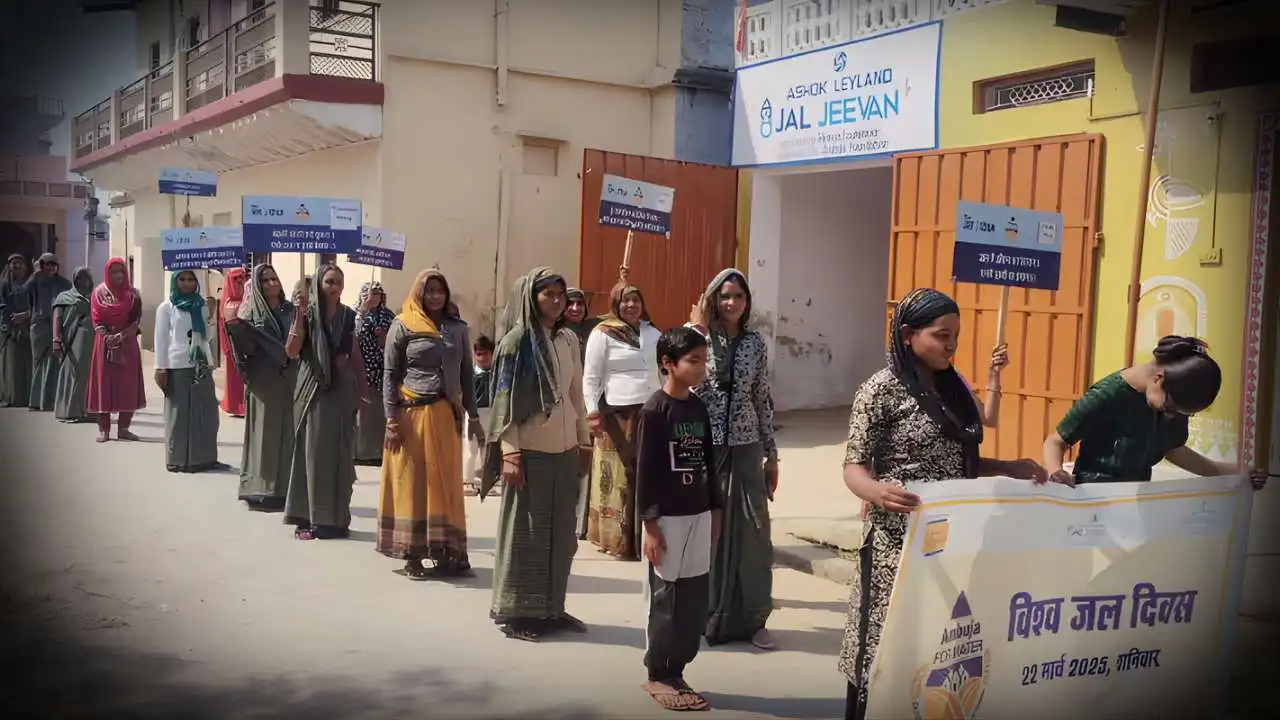In the arid stretches of Alwar, Rajasthan, water was once the centre of daily struggle. Every morning began with long walks under the harsh sun just to collect a few pots of water. The burden fell almost entirely on women, leaving them with little time for rest, education, or opportunities. Today, however, these same women are leading a powerful grassroots movement that is reshaping their villages. Through the Sujal Saheli initiative under the Hinduja Foundation’s Jal Jeevan program, a quiet revolution has emerged—one driven by unity, awareness, and determination.
Women Stepping into Leadership
The change began when local women were brought together to talk about water conservation and community responsibilities. Gradually, these discussions evolved into something greater—a platform for women to grow, learn, and lead. Many of the women involved had been married young and had limited schooling. Speaking in public, managing finances, or making village-level decisions were once unimaginable for them.
Rekha, for example, was married at just seven years old. Her life revolved around household chores and managing conflicts at home. When she joined the Sujal Mahila Sangh, she found encouragement, training, and a safe space to express herself. She continued her education and completed her Class 12 studies. Today, she organizes awareness sessions on clean water and self-growth. Her journey represents thousands of women who are reclaiming their voices after years of silence.
Water Access Changing Daily Life
Earlier, women like Jyoti walked several kilometres every day to fetch water, often leaving children unattended. There were days when electricity outages meant waiting for hours near village taps. The stress frequently led to arguments at home and exhaustion from balancing farm labour with household duties.
The Sujal Saheli initiative encouraged families to revive the traditional practice of building a rainwater storage structure called a tanka. These were constructed within household premises with support in the form of partial financial assistance. The result was life-changing. Homes that once struggled for every drop now have stored clean water for drinking, cooking, and bathing. The time saved from daily water collection has allowed women to focus on work, family care, education, and community development. Water is no longer a source of tension—it has become a foundation for empowerment.
Education and Skills Transforming Futures
Education plays a major role in this movement. When Sangeeta saw a rally led by women discussing water rights and learning opportunities, she felt inspired. Despite objections at home, she joined. She later travelled for hours to attend an accounting course, leaving her toddler under shared community support. Today, she manages accounts for the Sujal Mahila Maha Sangh, uses a computer confidently, and speaks English. Her growth shows how access and encouragement can reshape lives and identities.
A Movement Built on Sisterhood
What began as a solution for water scarcity has now grown into a federation of more than 850 women across 18 villages. It is not just a program—it is a movement built on trust, awareness, and shared progress. These women have shown that when they support each other, meaningful change follows. Their journey proves a simple but powerful truth: when women lead, the entire community rises.
